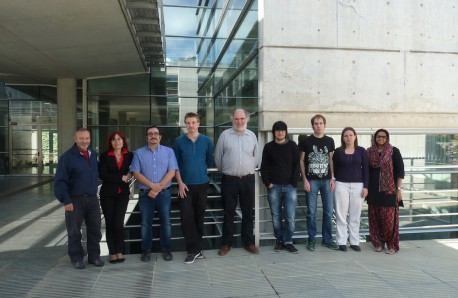Maseras
Research group

Research abstract
Computational chemistry is applied to the study of different chemical processes of practical interest. DFT and DFT/MM methods are used to different processes in homogeneous catalysis, in most cases in collaboration with experimental groups. Studies in 2013 focused on cross-coupling processes and the reactivity of metal-stabilized fragments.
Topics addressed
- Cross-coupling and related processes
- Reactivity of metal-stabilized fragments
Articles
“A General Mechanism for the Copper- and Silver-Catalyzed Olefin Aziridination Reactions: Concomitant Involvement of the Singlet and Triplet Pathways”
J. Am. Chem. Soc. (2013) 135, 1338 – 1348
L. Maestre, W. M. C. Sameera, M. M. Díaz-Requejo, F. Maseras, P. J. Pérez
“Oxidative Additions of Aryl Halides to Palladium Proceed through the Monoligated Complex”
ChemCatChem(2013) 5, 3604 – 3609
K. Vikse, T. Naka, J. S. McIndoe, M. Besora, F. Maseras
“Catalytic cross-coupling of diazo compounds with coinage metal-based catalysts: an experimental and theoretical study”
Dalton Trans. (2013) 42, 4132 – 4138
I. Rivilla , W. M. C. Sameera, E. Alvarez , M. M. Díaz-Requejo, F. Maseras, P. J. Pérez
“Computational characterization of a mechanism for the copper-catalyzed aerobic oxidative trifluoromethylation of terminal alkynes”
Chem. Commun.(2013) 49, 10486 – 10488
J. Jover, F. Maseras
“Computational perspective on Pd-catalyzed C-C cross-coupling reaction mechanisms”
Acc. Chem. Res. (2013) 46, 2626 – 2634
M. García-Melchor, A.A.C. Braga, A.Lledós, G. Ujaque, F. Maseras